- Home
- Features
- Business
- Active
- Sports
- Shop
Top Insights

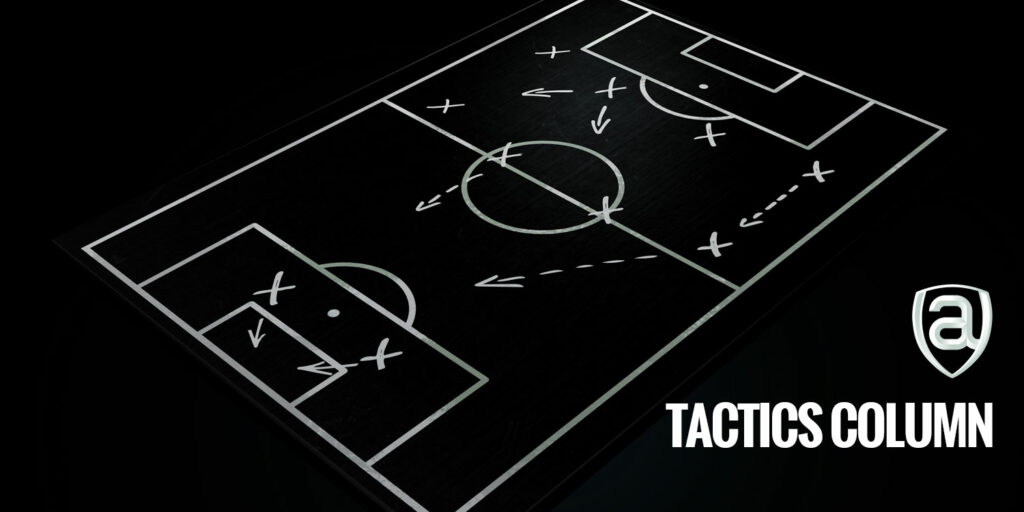
“It’s similar to helping someone on the pitch. You always think you help someone by going towards him but you help him the most by walking away from him. For example, I’ve got the ball, I like playing 1v1, so helping me means walking away.” — Johan Cruyff
You heard the man. If you’ve got someone who likes playing 1v1, just stay out of his way and take an opposition defender with you while you’re at it. Arsenal have Martin Odegaard back in the side, which means Bukayo Saka has Martin Odegaard back by his side. And Odegaard knows exactly when to leave the winger to his own devices.
Granted, the Nottingham Forest approach on Saturday looked a little confused and played into Arsenal’s hands. Callum Hudson-Odoi seemed focused on Jurrien Timber but didn’t actually manage to get close to pressing him. Odegaard easily distracted the central midfielders by tucking inside, and the combination of the two meant Saka was one-on-one repeatedly.
If this …
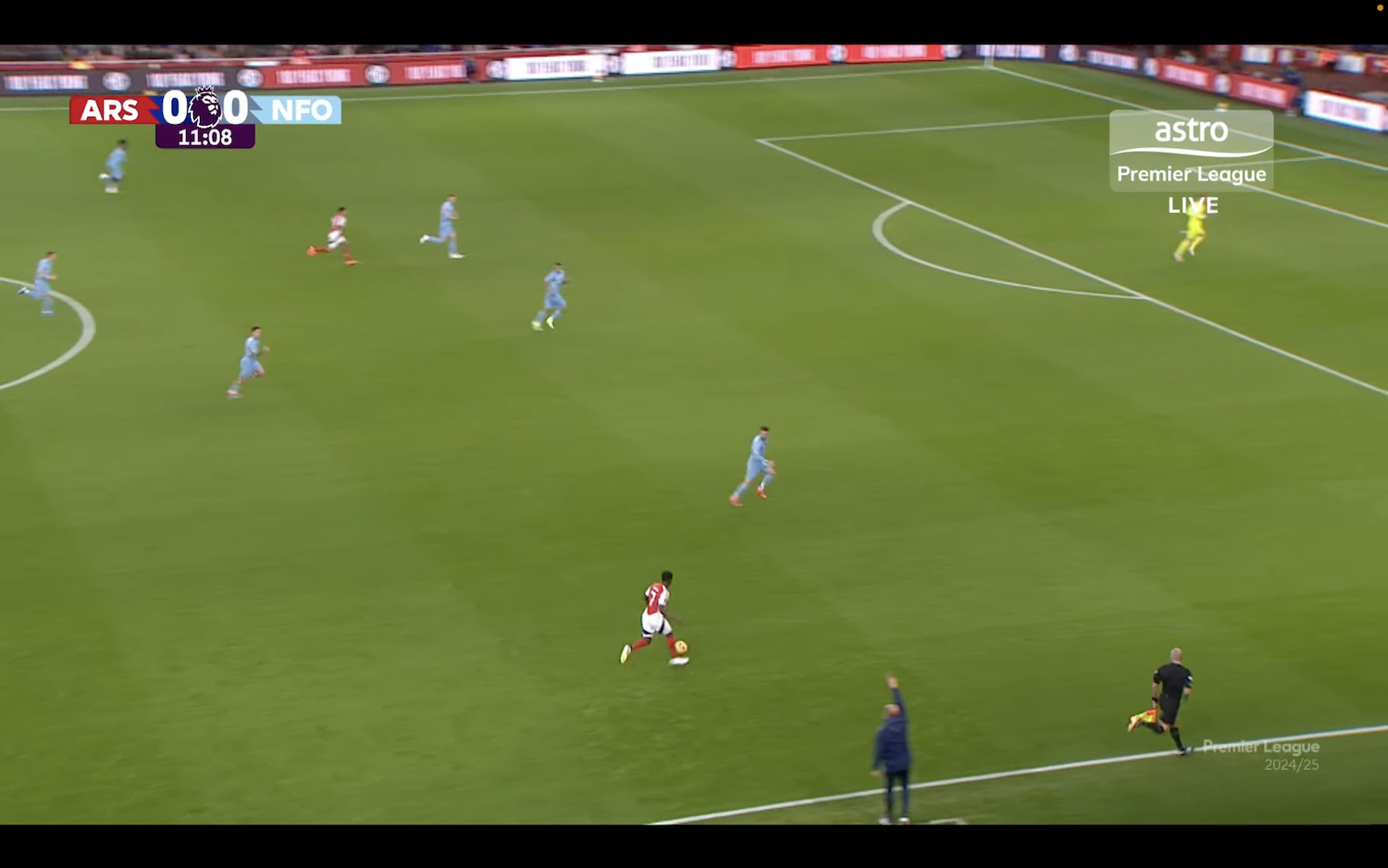 … happens too often, you’re in big trouble.
… happens too often, you’re in big trouble.
On that first image, Hudson-Odoi eventually did get back to sort of double up on Saka, but then another run, one in behind from Timber, allowed Odegaard to collect a simple pass in space on the edge of the area.
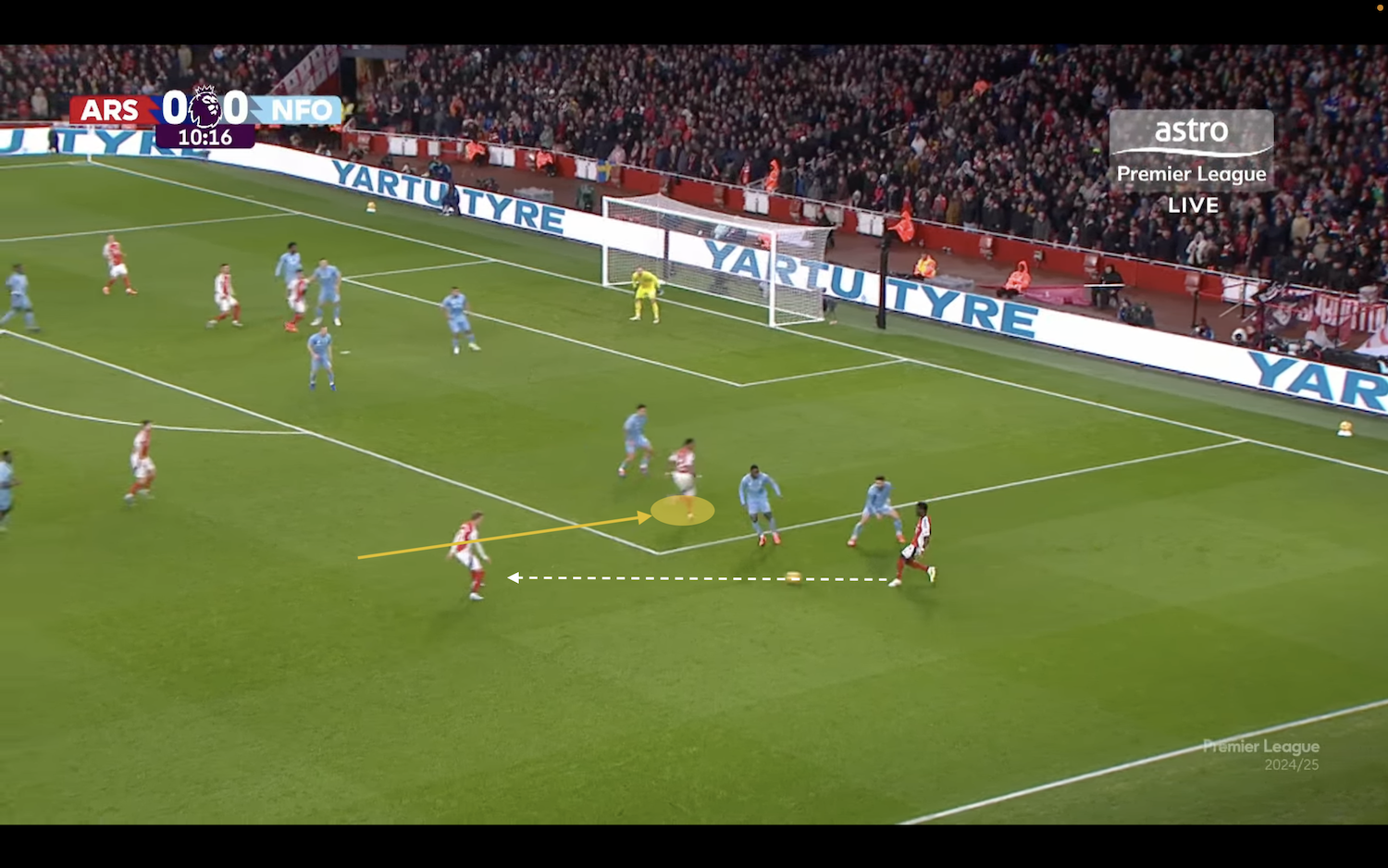 Nothing came of that one but it was a common sight to see Arsenal successfully isolating Saka, with Odegaard deliberately keeping his distance, allowing Saka to win his one-on-one and hanging back, waiting for the pass, rather than encroaching on the winger’s space.
Nothing came of that one but it was a common sight to see Arsenal successfully isolating Saka, with Odegaard deliberately keeping his distance, allowing Saka to win his one-on-one and hanging back, waiting for the pass, rather than encroaching on the winger’s space.
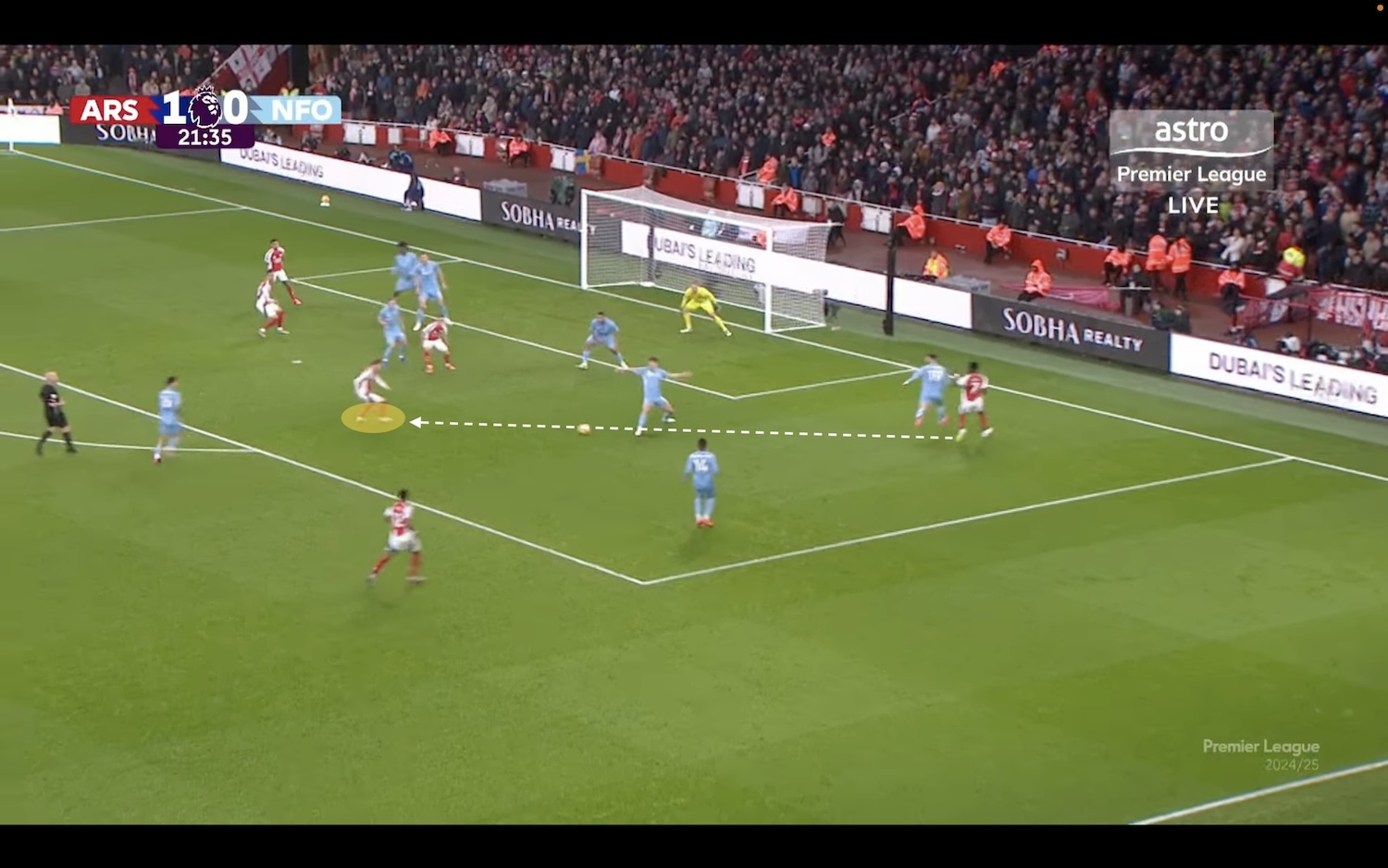 The key to threatening Forest down the right over and over again was allowing Saka to do his thing one-on-one, not going over to support him … until it was time to.
The key to threatening Forest down the right over and over again was allowing Saka to do his thing one-on-one, not going over to support him … until it was time to.
When Saka was doubled up or Arsenal reached the box, team-mates were suddenly on hand to help him play his way through it. The movement off the ball was excellent, the runs incisve and non-stop: when Arsenal weren’t one-on-one out wide, they gathered multiple players close to the ball, dragged defenders over, and managed to dart into the space to outnumber Forest anyway.
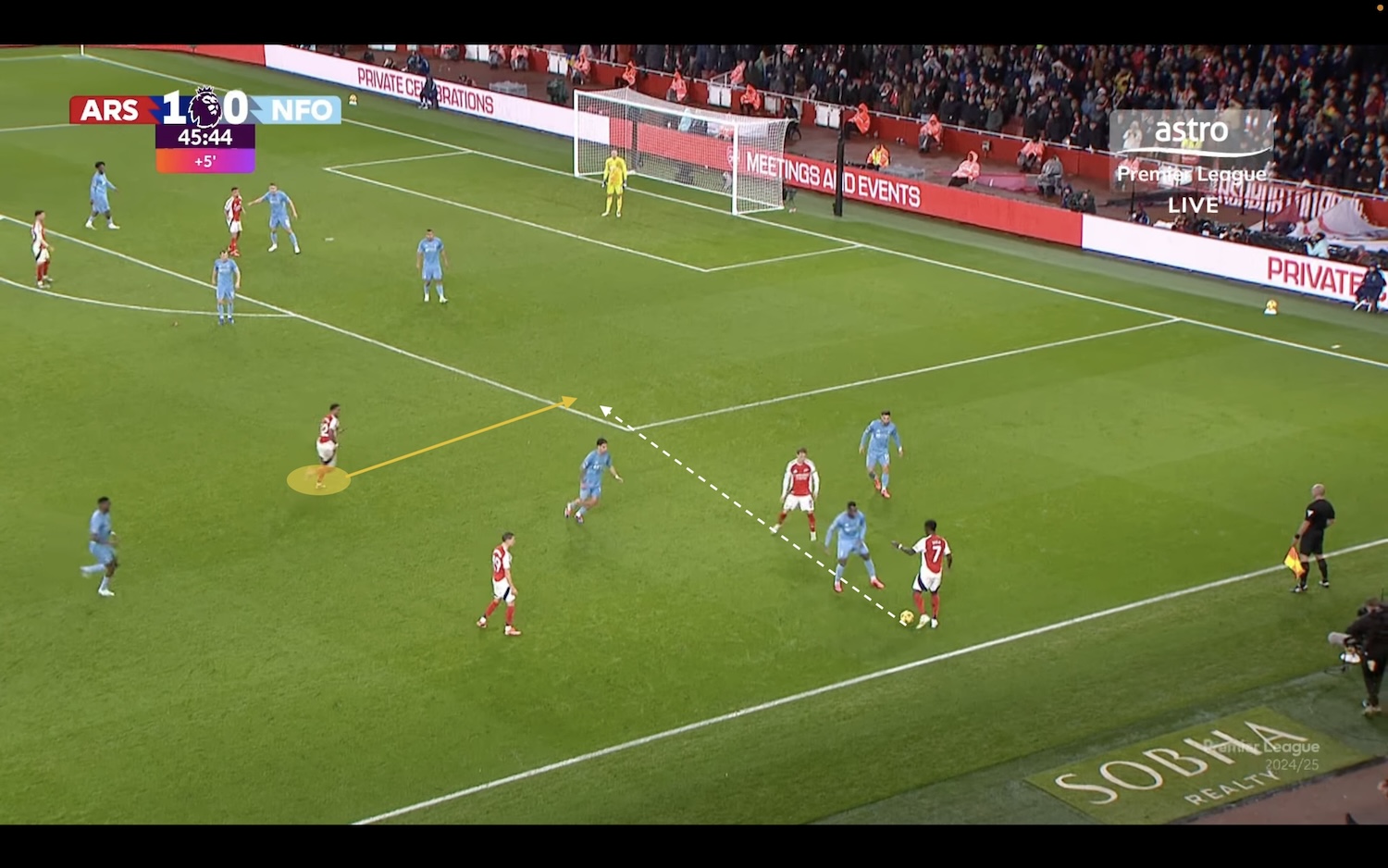 Let’s go back to Johan Cruyff again.
Let’s go back to Johan Cruyff again.
“We play on a short field with a lot of people, so the pace of the ball must be very high, nearly one or two touch mostly. That’s why we try to create (in training) a small piece of field, where the ball can go at a high pace. So (the players) here (in their heads) can go at 100%.”
One/two touch, quick actions, team-mates close together to connect and play through tight spaces? Sounds almost … Wenger-esque. A couple of moments really were.
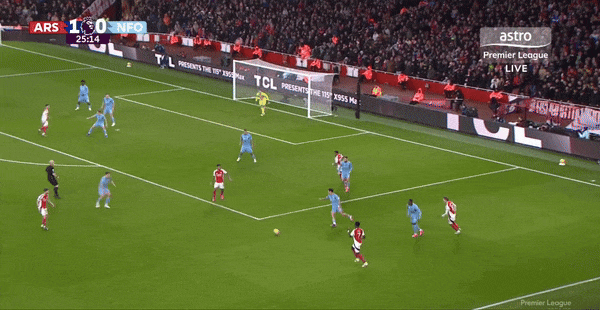 That wasn’t the only time Arsenal players broke out of their structure to play through the opposition. Below is one such moment a bit further away from the goal, where seven of the 10 outfield players are all gathered over on one side of the pitch.
That wasn’t the only time Arsenal players broke out of their structure to play through the opposition. Below is one such moment a bit further away from the goal, where seven of the 10 outfield players are all gathered over on one side of the pitch.
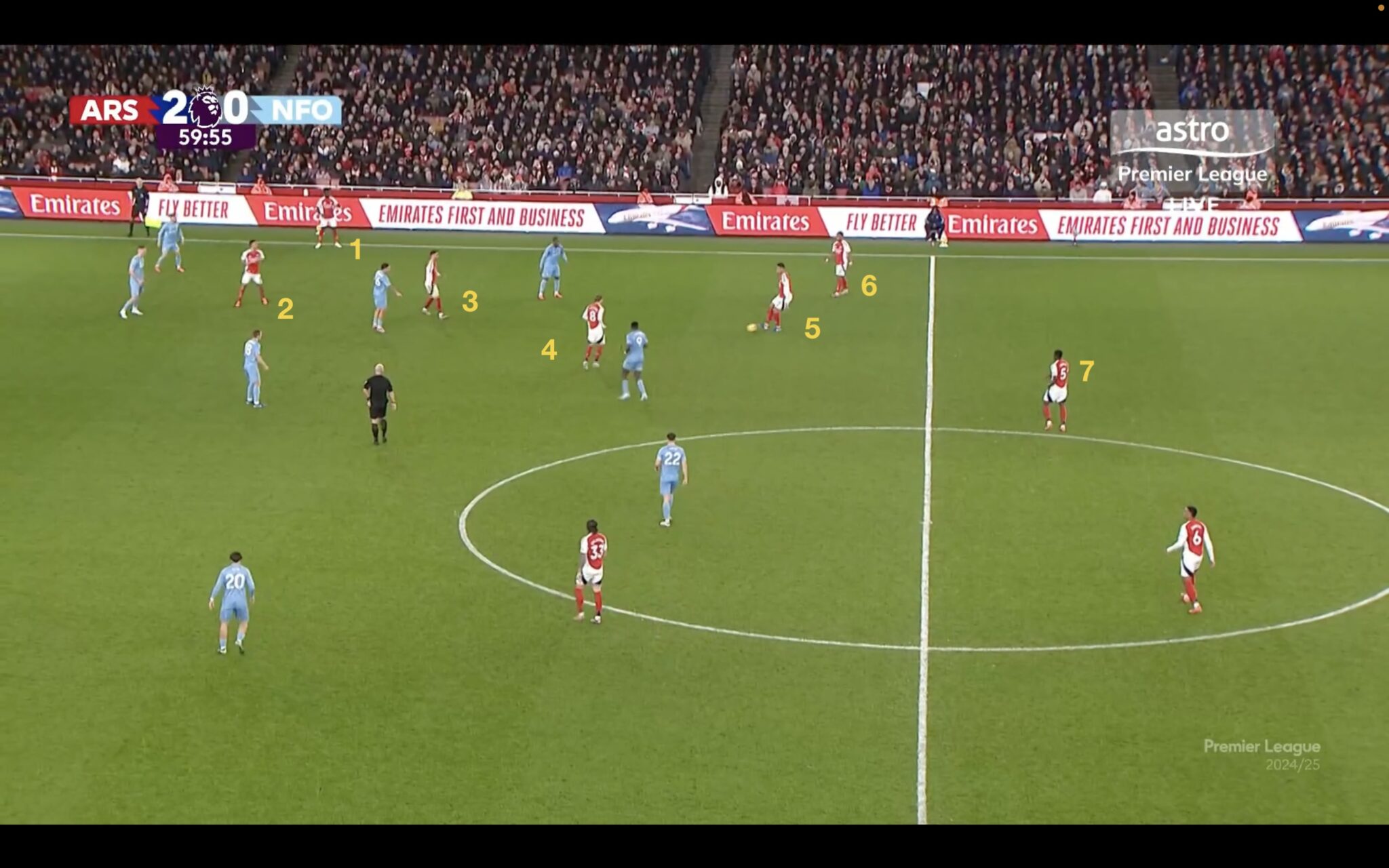 Crucially, nobody is standing next to anyone else as Arsenal look to progress the ball: there are diagonal or vertical balls on only, forming multiple triangles and giving every player over there in those tight spaces multiple options to play the ball, play it forward, and play it quickly.
Crucially, nobody is standing next to anyone else as Arsenal look to progress the ball: there are diagonal or vertical balls on only, forming multiple triangles and giving every player over there in those tight spaces multiple options to play the ball, play it forward, and play it quickly.
The move above broke down when Merino didn’t get the weight right on a ball to Odegaard on the edge of the area but the quick passing and even quicker movement — Jesus creating space for Saka to drift inside, Saka doing just that so Merino could drift wide into space out wide — again looked like a much more confident, flowing Arsenal.
A similar assortment gathered on the left in the first half, with Riccardo Calafiori tucking inside and Odegaard drifting over to that side of the field.
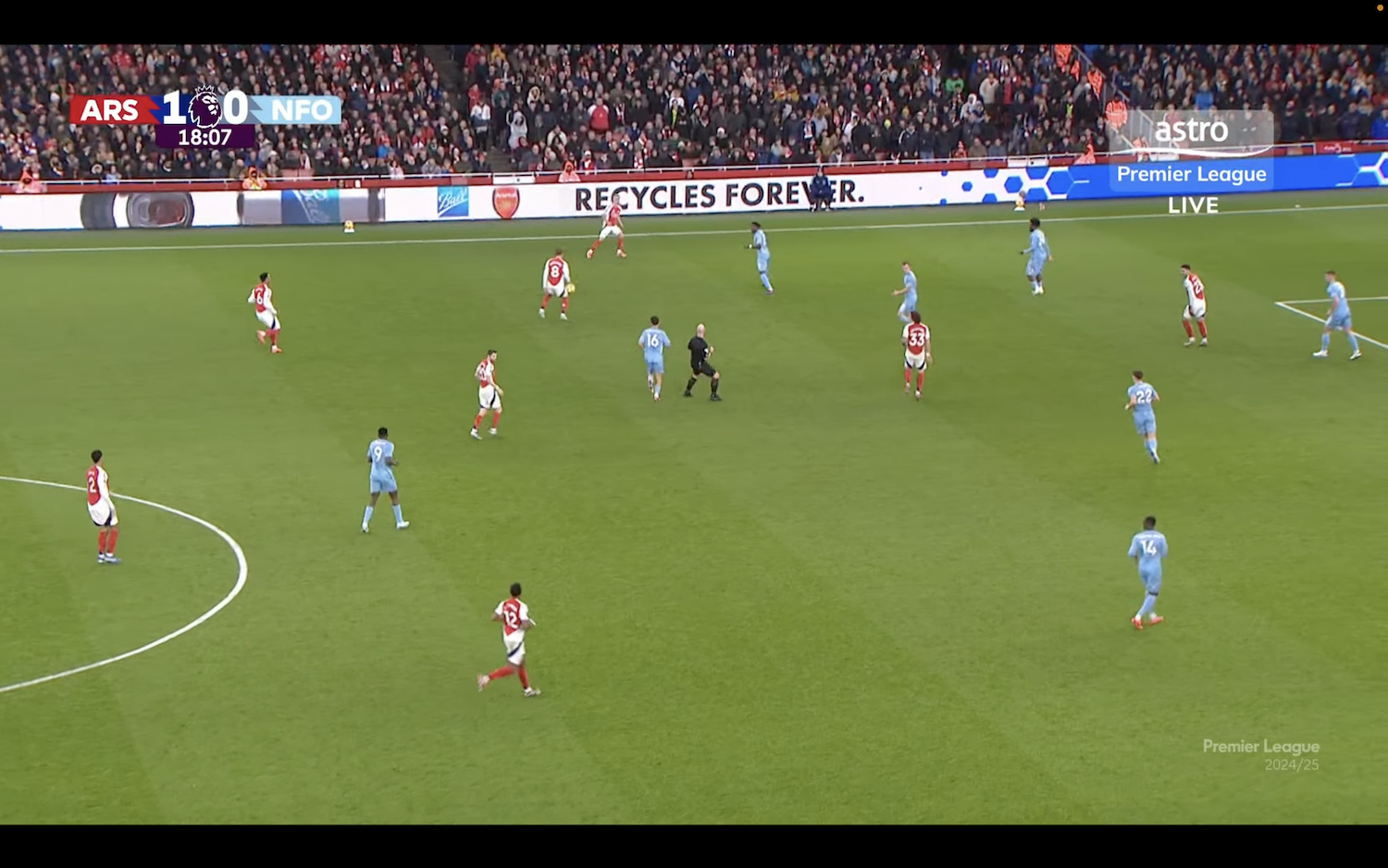 Some tidy play between those two and Leandro Trossard almost saw Odegaard finding Bukayo Saka with a cutback as Mikel Merino and Gabriel Jesus made darting runs inside the box.
Some tidy play between those two and Leandro Trossard almost saw Odegaard finding Bukayo Saka with a cutback as Mikel Merino and Gabriel Jesus made darting runs inside the box.
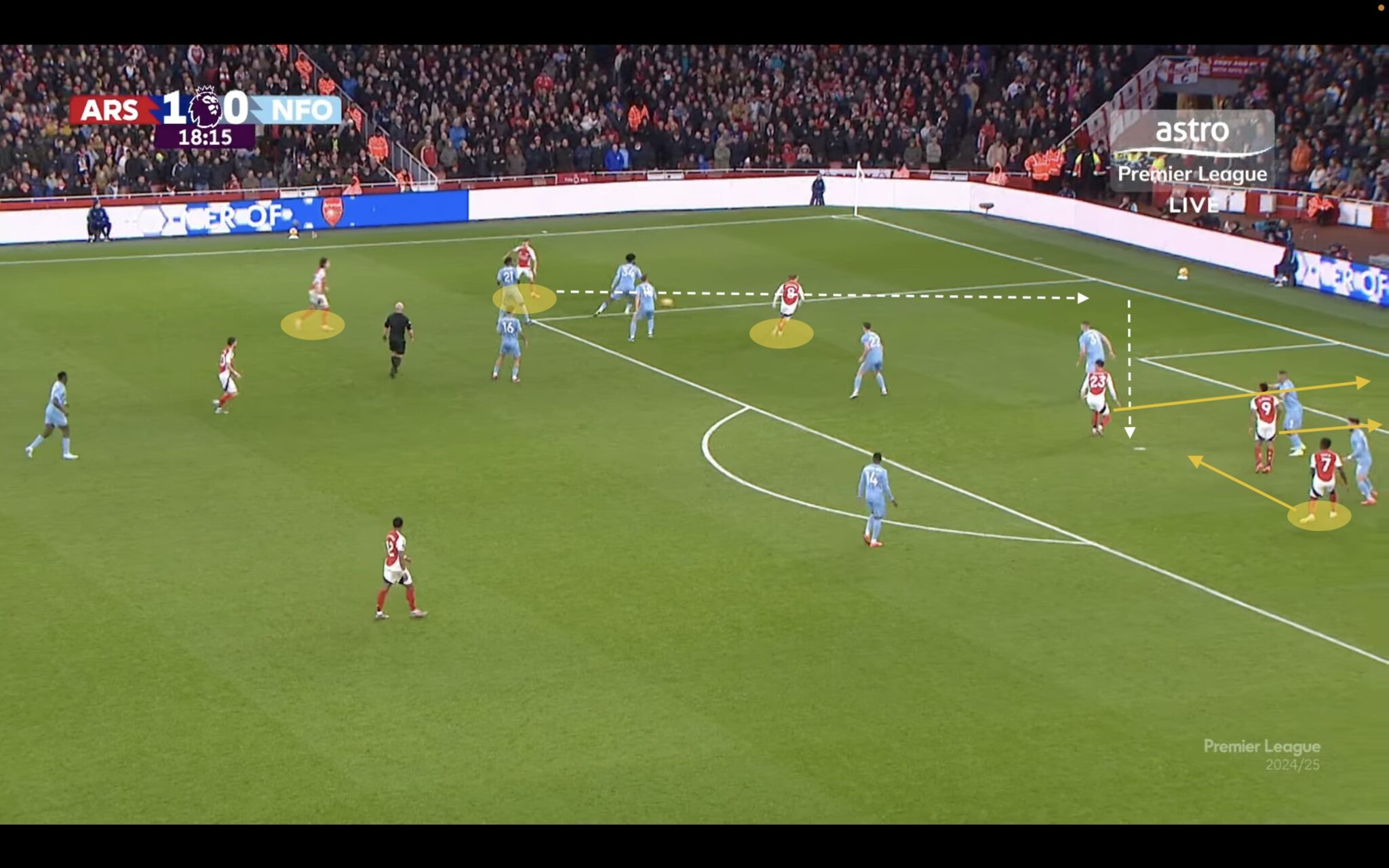 Odegaard’s off the ball run for the second goal — when Saka did have more than one man to beat — opened up space again and, like plenty of the movement on the day, showed the importance of quick bursts whether you are going to receive the ball or not.
Odegaard’s off the ball run for the second goal — when Saka did have more than one man to beat — opened up space again and, like plenty of the movement on the day, showed the importance of quick bursts whether you are going to receive the ball or not.
Ultimately, it’s all about posing the opposition with questions. Leave Saka as alone as possible and you’re really forcing them to choose if they want to double up and leave space elsewhere. Make runs in behind off the ball and force them to choose whether to let you go or open up space for someone else. And if they want to sit back and make things tight, get even more attacking players around the ball and up the tempo to play through them.
The balance of all the above was excellent against Forest and it really gave a glimpse of what this Arsenal team should be capable of when they have to break a side down this season.
The post Tactics Column: Come here, go away appeared first on Arseblog … an Arsenal blog.
Recent Posts
Categories
Related Articles
Ashworth paid the price with his job at United after “driving” through bizarre deal for summer flop – ESPN
Manchester United’s decision to target Joshua Zirkzee in the summer was reportedly…...
ByglobalreutersFebruary 21, 2025Liverpool attacker ‘will 100% leave Liverpool’ this summer; nearly left in January – report
Liverpool fans are awaiting news on the future of some of our...
ByglobalreutersFebruary 21, 2025Report: Leicester City enquire about signing West Ham United target and Champions League wonderkid
West Ham United and Leicester City are reportedly eyeing a summer move...
ByglobalreutersFebruary 21, 2025


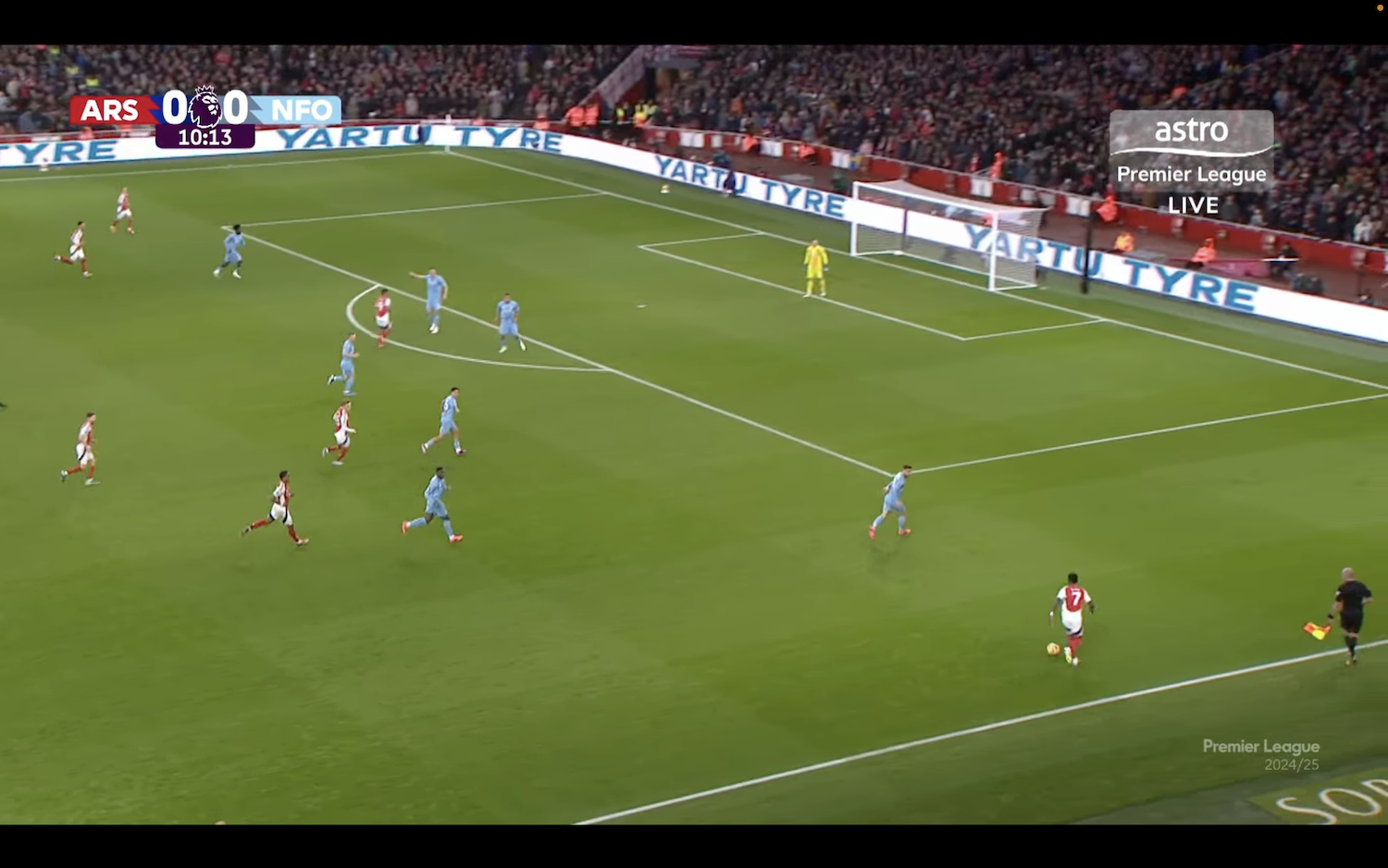
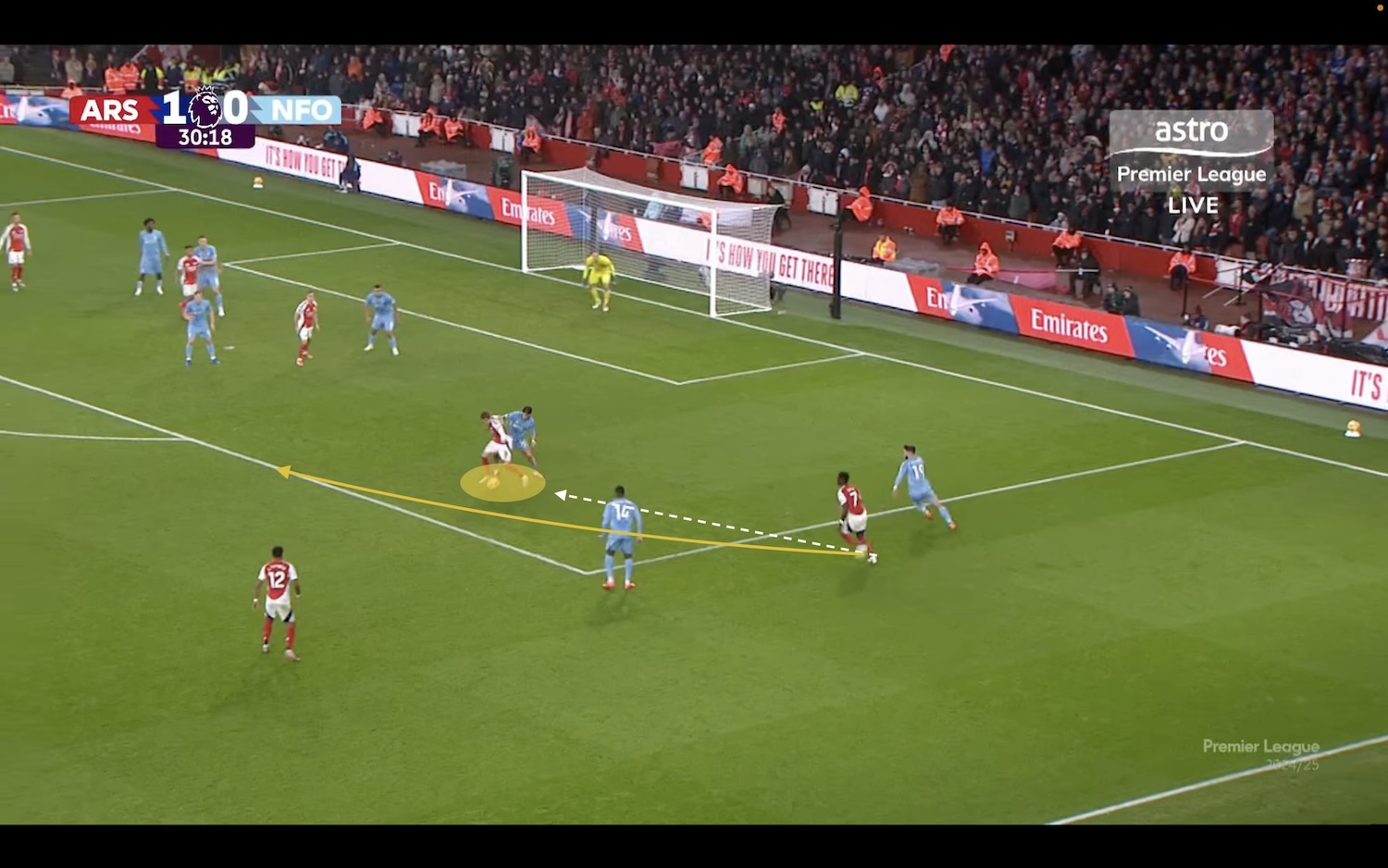
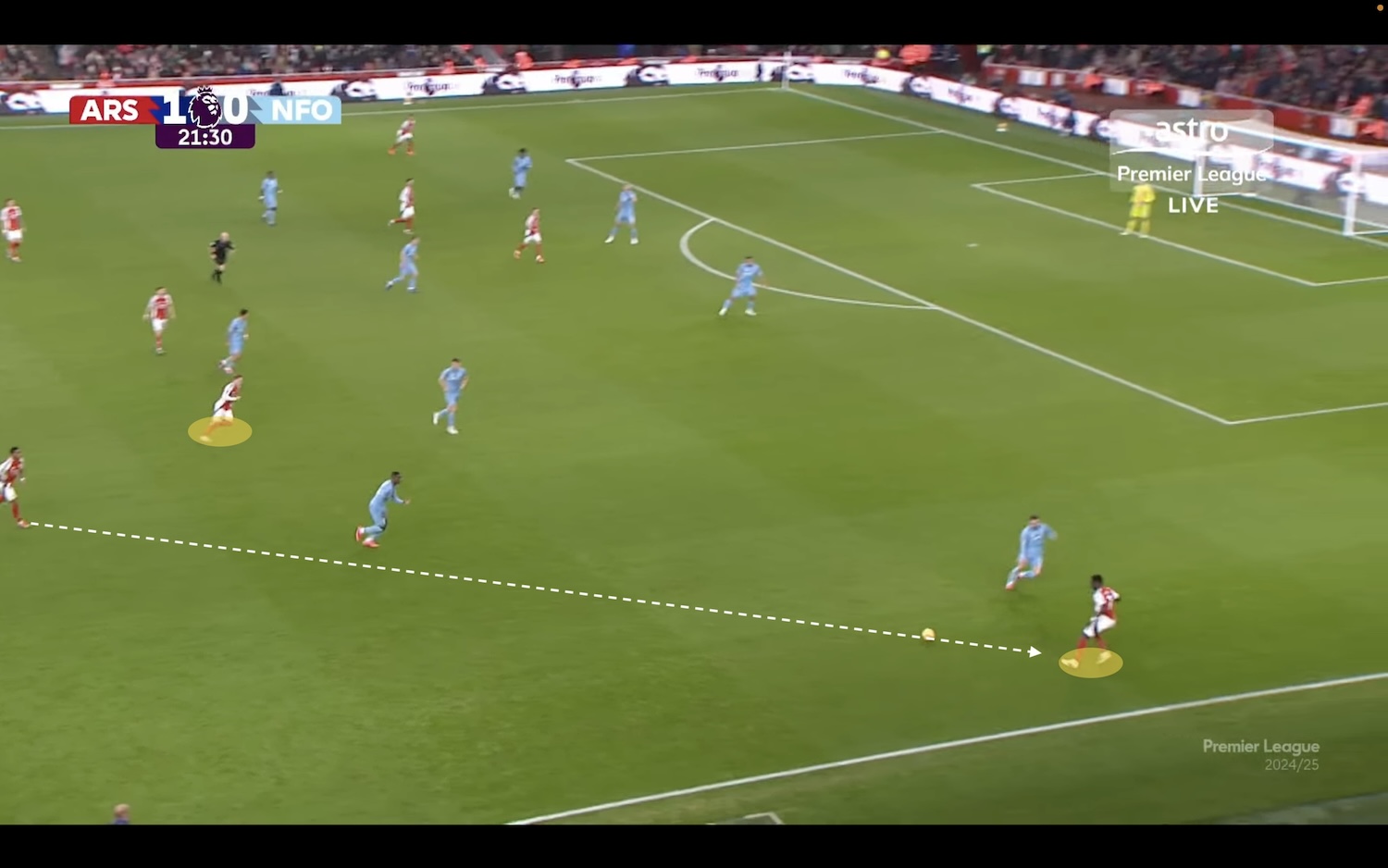
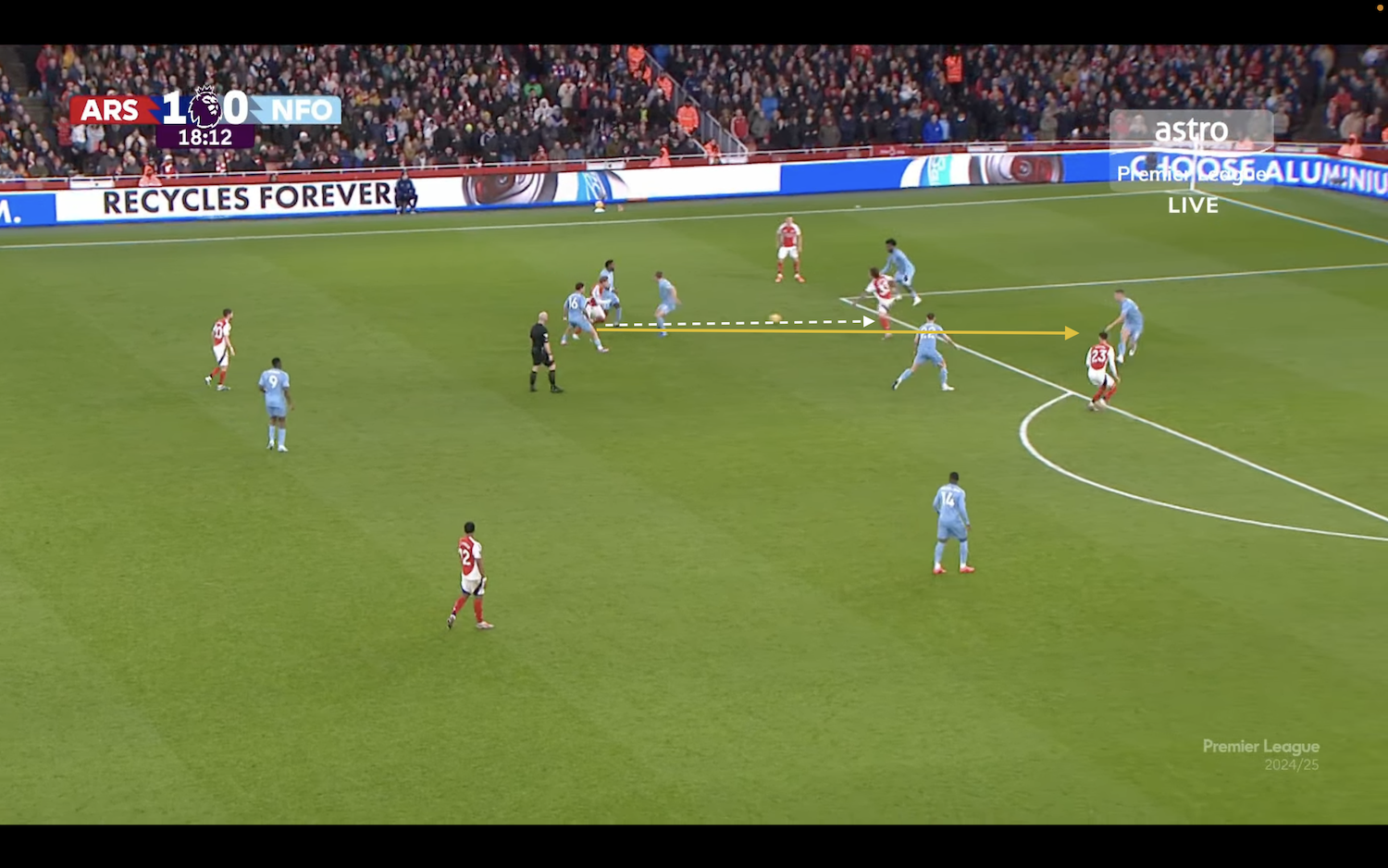




Leave a comment